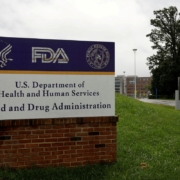FDA greenlights Sun Pharma’s severe alopecia areata treatment
FDA greenlights Sun Pharma’s severe alopecia areata treatment
The FDA approved 55 new drugs and 34 cell and gene therapies in 2023. But it’s not always good news that companies have to deliver to their stakeholders; the year also had its fair share of Complete Response Letters.
BioSpace is committed to keeping you up-to-date on all the FDA’s actions in this FDA Decision Tracker.
July 25
Product: Sun Pharma’s Leqselvi
Indication: Alopecia Areata
Adult patients with severe alopecia areata, an autoimmune disease that leads to hair loss, have a new treatment option after the FDA approved Sun Pharma’s Leqselvi on Thursday. An oral JAK inhibitor, Leqselvi interrupts the pathways thought to contribute to hair loss in severe alopecia areata, according to Sun.
The approval is supported by two randomized, double-blind, placebo-controlled Phase III trials that enrolled a total 1,220 patients with alopecia areata who had at least 50% scalp hair loss. At baseline, the average trial participant had 13% scalp coverage. After 24 weeks of treatment with Leqselvi, more than 30% of patients experienced 80% or more scalp coverage; up to 25% of patients had almost all of their scalp hair back after 24 weeks, Sun reported.
July 24
Product: BioMarin’s Brineura
Indication: Batten disease
BioMarin secured an expanded approval Wednesday for Brineura, its treatment for the genetic condition called neuronal ceroid lipofuscinosis type 2 (CLN2) disease. The treatment, which was previously indicated only for symptomatic children 3 years of age and older with late infantile CLN2 disease, also known as Batten disease, can now be given to diagnosed children of all ages, regardless of whether they are symptomatic or presymptomatic.
“Today’s approval represents a significant step forward in enabling children to be treated with Brineura as early as possible, when we can have the greatest impact in altering the natural course of disease,” Hank Fuchs, president of worldwide research and development at BioMarin, said in a statement.
The label expansion is based on a Phase II trial that evaluated Brineura in children aged 1–6 over three years, with eight patients being less than 3 years old. The results showed that Brineura slowed the decline in motor function and delayed disease onset, according to BioMarin. The safety results in children under 3 years was similar to the therapy’s known safety profile.
July 18
Product: Phathom Pharmaceuticals’ Voquezna
Indication: Non-erosive gastroesophageal reflux disease
Phathom Pharmaceuticals secured a third indication for its acid suppression drug Voquezna on Thursday. Previously approved to treat H. pylori infection and erosive gastroesophageal reflux disease (GERD), Voquezna is now authorized for the non-erosive form of the disease.
The non-erosive GERD approval was supported by a pivotal trial in which Voquezna quickly and significantly reduced heartburn with daily treatment compared to placebo over four weeks. The median percentage of heartburn-free days was 48% for patients treated with Phathom’s drug, compared to 17% for placebo-treated participants.
The approval significantly opens the market opportunity for Voquezna, as an estimated 15 million people in the U.S. are treated with prescription drugs for non-erosive GERD compared to approximately 7 million for erosive GERD.
July 16
Product: Orexo’s OX124
Indication: Opioid overdose
Second time is not the charm for Orexo, as the FDA denied its application for OX124, a high-dose naloxone nasal spray for the rescue treatment for opioid overdose.
In its Complete Response Letter, the FDA requested another “human factors” study before the company files another application. The request is aligned with previous communication between Orexo and the FDA, the company noted in its press release, and Orexo has already completed such a study. The CRL also requested additional technical data on the final commercial product, which Orexo said was “unexpected.”
The FDA previously rejected OX124 in April 2023, citing “technical issues with the equipment used for the secondary packaging process.”
July 10
Product: Novo Nordisk’s insulin icodec
Indication: Diabetes mellitus
Novo Nordisk was hit with a rejection Wednesday for its once-weekly basal insulin icodec injection for the treatment of diabetes mellitus. It appears Novo was tripped up by manufacturing issues, as the company said the FDA made requests related to the manufacturing process in its Complete Response Letter. The regulator also raised concerns related to the use of insulin icodec in type 1 diabetes (T1D). Novo does not expect to be able to address the requests this year.
The FDA’s decision follows an advisory committee vote that went against Novo’s application. In a 7-4 vote, the FDA’s Endocrinologic and Metabolic Drugs Advisory Committee agreed the current evidence shows icodec’s benefits do not outweigh its risks. The advisers specifically pointed to the heightened risk of hypoglycemia versus the once-daily Tresiba (insulin degludec) in T1D patients.
July 9
Product: Arcutis Biotherapeutics’ Zoryve
Indication: Atopic dermatitis
Arcutis Biotherapeutics won its third indication in two years for Zoryve, as the FDA green lit the topical cream to treat adults and children six years and older with atopic dermatitis. Arcutis said Zoryve will be available through wholesalers and dermatology pharmacies by the end of July.
The approval is supported by three Phase III trials, including INTEGUMENT-1 and INTEGUMENT-2. Both studies met the primary endpoint of treatment success as determined by a score of clear or almost clear on the validated Investigator Global Assessment-Atopic Dermatitis scale, alongside a two-grade improvement at four weeks.
Zoryve is also approved to treat patients six years and older with plaque psoriasis and seborrheic dermatitis in people nine years and older.
July 2
In one of the year’s most highly anticipated decisions, the FDA on Tuesday approved Eli Lilly’s donanemab, an anti-amyloid antibody designed to modify the course of Alzheimer’s disease. Donanemab, which will be marketed as Kisunla, will compete with Biogen and Eisai’s Leqembi, greenlit last year, which brought in $19 million for its makers in Q1 2024.
The FDA’s decision comes less than a month after an advisory committee voted unanimously in donanemab’s favor. This was despite some concerns outlined in briefing documents regarding Lilly’s trial methodology, including its use of the integrated Alzheimer’s Disease Rating Scale (iADRS) as the primary endpoint, the use of tau protein levels to decide study inclusion and the cessation of donanemab treatment in patients whose brain amyloid levels dropped past a certain, pre-specified threshold.


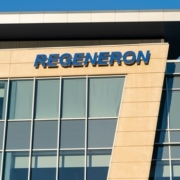
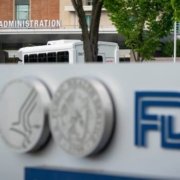

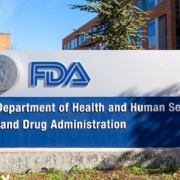

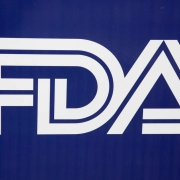
 Reuters
Reuters